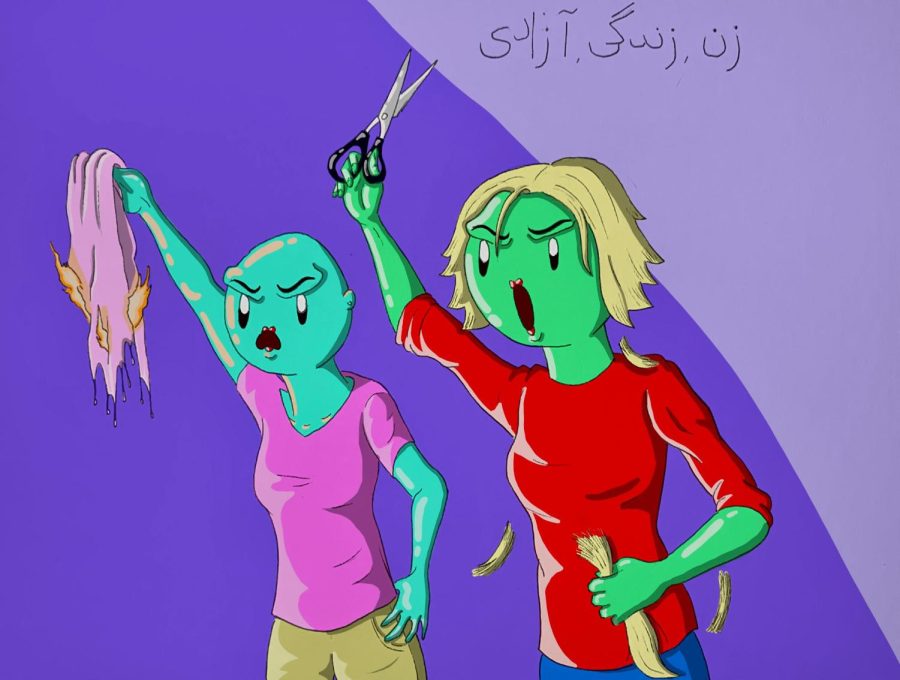CSUN co-hosts discussion on Iranian protests
Illustration
November 9, 2022
CSUN’s Civil Discourse & Social Change initiative, along with the school’s Middle Eastern and Islamic Studies program, hosted a discussion about the current protests in Iran. The event took place over Zoom, in collaboration with the California State University, Long Beach Department of Women’s, Gender & Sexuality Studies, on Oct. 27, 2022.
Over 100 people attended “Woman. Life. Freedom: A Conversation on the Iranian Uprising,” to listen to CSUN’s Nayereh Tohidi, University of California, Irvine’s Catherine Sameh, and the University of Texas at Austin’s Nahid Siamdoust speak about the context of the Iranian social movement, its translation to other feminist movements, and the involvement of social media in the current protests.
The event’s speakers talked of the current Iranian protests as part of a long history of Iranian protests, and the Iranian plight to enjoy life.
Tohidi claimed that for the past 150 years, the Iranian people have been in a “fight for democracy,” and the last four decades of oppressive rule had built-up anger in Iranians.
Siamdoust believed that the unity of minorities, the youth of protesters, and the focus on gender were all significant aspects of the protests.
Sameh said issues like economic decline and pollution have led to an inability to enjoy life within Iran. As domestic issues continued to grow, the Iranian government cracked down harder on dissent while imposing rules further into people’s lives, according to Sameh. She said the Iranian government tries to blame dissent on outside forces, but “no one believes the movement is a product of Western interference.”
“It’s a movement to get back normal life,” said Tohidi. “It’s a movement for dignity.”
Issues of the Iranian protests’ translations to Western feminist movements were also discussed. Siamdoust thought that some Western feminists were reluctant to put hijabs at the center of the movement, even though Iranian protesters had. The speakers criticized those who refrained from critiquing the Iranian government because of its anti-imperialist values. Tohidi claimed that fighting the Iranian government is not Islamophobic, but that the Iranian government has corrupted Islam.
Siamdoust said that for many Iranians, social media is a place where they can see people enjoying life without the government’s restrictions. On social media, some women can be seen openly singing and not wearing a hijab.
The speakers addressed a couple of student questions at the end of the event. One student asked why similar problems faced by women in Afghanistan weren’t getting as much coverage. The speakers believed that while women in Afghanistan face a similar plight, women in Iran are in a much better position to organize due to Iran having a more developed economy, technological prowess and educated women. Tohidi said she thinks an uprising in Afghanistan is “going to happen eventually.”
Siamdoust spoke for all three speakers when they were asked for final words by the convener.
“My hope is that this is a revolution we can all support full-heartedly,” she said. “[I hope] it will pull Iranian women out of the darkness we face worldwide.”
